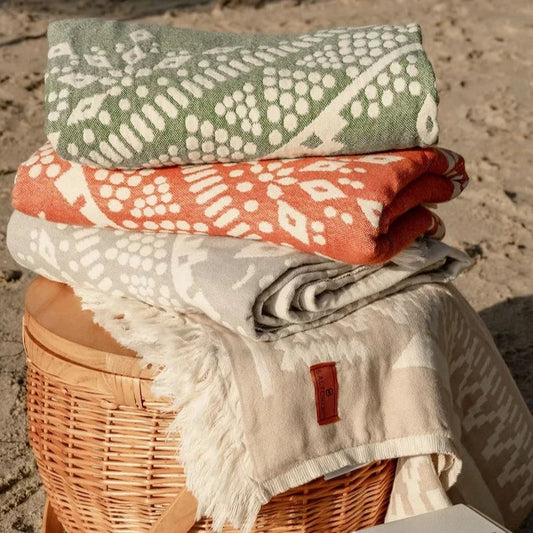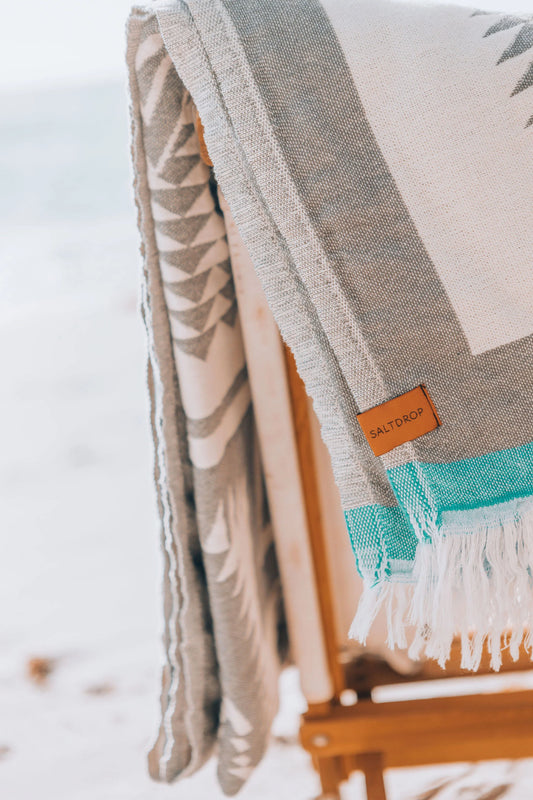There are so many fabrics and textiles to choose from. When I created SALTDROP, I needed packable and lightweight blankets and towels. But why choose Turkish Cotton over Polyesters? After researching the impact on people and our environment, there was a clear winner.
Environmental Impact of Polyester (including microfibers, fleece, etc):
- Despite its positive qualities such as durability, packability, and resistance to wrinkles, it is not a sustainable fabric.
- It is a synthetic material (a type of plastic) made from petrochemicals (petroleum/oil), which are non-renewable resources that contribute to the depletion of fossil fuels
- Has a high energy consumption and is highly pollutive. The production and manufacturing of polyesters release greenhouse gases that contribute to climate change
- Not biodegradable and can take hundreds of years to decompose, contributing to plastic waste and environmental pollution
- Breaks down into micro-plastics, which pollute our bodies, oceans, and lands
- Unbreathable material that traps heat, can cause rashes, and exacerbate sensitive skin issues.
Sustainability of Turkish Cotton:
- Turkish Cotton is a natural and renewable resource that is grown using organic farming methods, reducing the use of harmful chemicals and promoting sustainability
- Its longer fibers lead to less waste in the spinning and weaving process, making it a more resource-efficient option
- It is lightweight and more packable than conventional cotton due to its uniquely long fibers
- Organic Turkish cotton is biodegradable and can break down naturally without harming the environment
Enough said, right? With all that in mind, I decided to use Turkish Cotton because it was the safest and most sustainable material for my family and yours!
Here's to a better now and tomorrow,
-Christine





